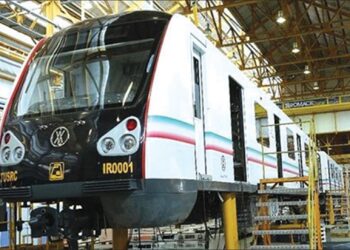Iran has long insisted that no pipeline can be built on the Caspian seabed so long as the five coastal states have not agreed on where to draw the borders in the Caspian, something that Russia, Kazakhstan, Azerbaijan and Turkmenistan agreed to many years ago. But Iran won’t agree to that plan, which gives Iran 13 percent of tbe seabed, while Iran demands 20 percent.
Iran has also objected that any pipeline would be a threat to the ecological integrity of the Caspian, although Iran recently announced discovery of a gasfield in the Caspian that will require a pipeline to get the gas to shore.
The objections by Iran and Russia are chiefly to keep Turkmenistan from exporting gas to Europe across the Caspian, Azerbaijan, Georgia and Turkey.
Iran sees Turkmen gas as blocking the sale of Iranian gas to Europe. Russia sees Turkmen gas as a rival to Russia’s near gas monopoly in Europe.
But Aurelia Bouchez, the head of an EU delegation on the issue, dismissed the objections outright last week.
“Pipelines may be built across borders that exist but the legal status of which is not yet determined,” she said. “This happens quite often. In the EU, we had such problems in the North Sea.”
She said the EU took no position on borders within the Caspian and left that to the five littoral states to decide.
As for Iran’s environmental objections. Bouchez said the EU financed an environmental assessment, which concluded that a trans-Caspian pipeline would have less impact than the many existing pipelines that bring Caspian oil and gas to shore.
There is no longer any real competition between Iranian and Turkmenistani gas so far as Europe is concerned. The EU decided a few years ago that it would not permit any Iranian gas into the EU until the nuclear issue was completely settled.
















